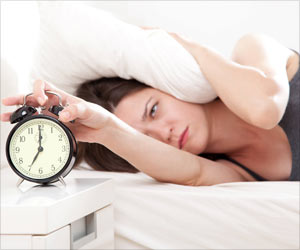Highlights
- Factors such as insufficient sleep and insulin resistance may be linked by improper balance of hormones.
- An imbalance in testosterone and cortisol hormones due to insufficient sleep can cause increased insulin resistance.
- Sleep loss can reduce a man's testosterone levels and increases cortisol levels and this can also lead to type 2 diabetes.
Insulin resistance generally occurs when the body is not able to utilze the insulin hormone properly. Of the two hormones, testosterone is an muscle-building, hormone, whereas cortisol the "stress hormone"--helps in the catabolism, or breaking down of energy and fat stores for use, explained Liu.
Previously research has also shown that sleep loss can reduce testosterone levels and increase their cortisol levels in men.
Liu and his team of researchers conducted five nights of the sleep study in 34 men who had an average age of 33. In the study, they also controlled what the subjects ate and how much they slept. They gave them 10 hours of sleep the very first night and restricting them to four hours of sleep the remaining nights. National Institutes of Health and the Clinical and Translational Research Center at LA BioMed funded this research.
Men served as their own controls in this crossover study; they received three medications: ketoconazole, cortisol, testosterone gel and oral hydrocortisone.
This part of the study was called a dual "clamp" because it dealth with stopping the body's production of both hormones and then they gave them a fixed amount of the hormones, thus clamping levels in a normal hormonal balance. he said.
The order of when they should have received the clamp and placebo was done at random, with a two-week interval between the study conditions.
In the morning after the first and the last night of each part of the study, all the men took the oral glucose tolerance test.
The results from this test helped the researchers to calculate each participants insulin resistance using standard measures, including the Matsuda Index.
After the sleep restriction, the Matsuda index showed greater insulin resistance with both the clamp and the placebo. However the increase in sugar level was significantly dampened, or reduced, with the dual-clamp, proving that testosterone and cortisol reduced the negative effects of sustained sleep restriction on insulin resistance.
"Maintaining hormonal balance could prevent metabolic ill health occurring in individuals who do not get enough sleep," he said.
"Understanding these hormonal mechanisms could lead to new treatments or strategies to prevent insulin resistance due to insufficient sleep.," said Liu.
Source-Medindia














